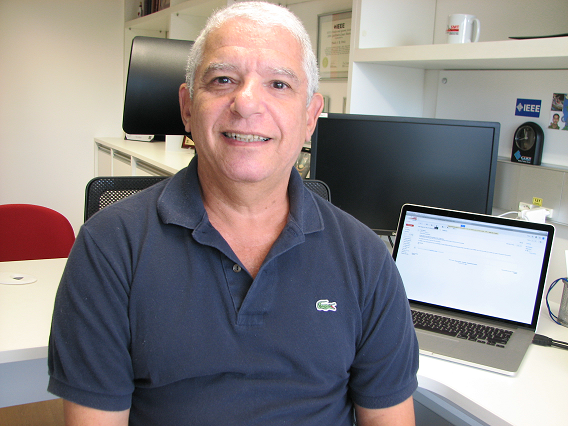CAS INVITED SPEAKER SEMINAR IN ELECTRICAL AND COMPUTER ENGINEERING

The IEEE Montreal Section, IEEE Circuits and Systems Society Montreal Chapter, IEEE Solid State Circuits Society Montreal Chapter, Department of Electrical and Computer Engineering, Concordia University, and ReSMiQ – Regroupement Stratégique en Microsystèmes du Québec invite you to attend the talk by Prof. Paulo Diniz from Department OF Electronics and Computer Engineering, Federal University of Rio de Janeiro on Monday December 20th, 2021. The event is virtual and registration is free.
Date and Time
Location
Hosts
Registration
-
 Add Event to Calendar
Add Event to Calendar
- Contact Event Hosts
-
For additional information, please contact:
Dr. M. Omair Ahmad
Chair of IEEE Circuits and Systems Society Montreal Chapter
E-mail: m.omair.ahmad@concordia.caDr. Weiping Zhu
E-mail: weiping.zhu@concordia.ca
- Co-sponsored by IEEE Montreal Section, IEEE Montreal Chapters of CAS and SSC
Speakers
 DR. PAULO S. R. DINIZ of Federal University of Rio de Janeiro
DR. PAULO S. R. DINIZ of Federal University of Rio de Janeiro
Feature Adaptive Filtering Algorithms: Exploiting Hidden Sparsity
New approaches have been proposed to detect and exploit sparsity in adaptive systems. However, the sparsity is not always explicit among the system coefficients, thus requiring some tools to reveal it. This work proposes a family of adaptive filtering algorithms to expose some hidden features of the unknown
parameters. The basic idea applies to any algorithm we will concentrate on a family collectively named Feature Least Mean Square (F-LMS) algorithms. We also discuss the low-complexity feature stochastic gradient (LF-SG) algorithms, to reduce the complexity further. These algorithms increase the convergence speed and reduce the steady-state mean-squared error compared to the classical LMS solution. The main idea is to apply linear transformations through the so-called feature matrices to reveal the sparsity hidden in the coefficient vector, followed by a sparsity-promoting penalty function to exploit the exposed sparsity. For illustration, a few F-LMS algorithms for lowpass, bandpass, and highpass systems are introduced using simple feature matrices that require only simple operations or can learn the features. Simulations and real-life experiments demonstrate that the F-LMS and LF-SG algorithms bring about several performance improvements whenever the unknown sparsity of parameters is exposed.
Biography:
Paulo S. R. Diniz was born in Niterói, Brazil. He received his Electronics Eng. degree (Cum Laude) from the Federal University of Rio de Janeiro (UFRJ) in 1978, his M.Sc. degree from COPPE/UFRJ n 1981, and his Ph.D. from Concordia University, Montreal, P.Q., Canada, in 1984, all in electrical engineering. He wrote the books ADAPTIVE FILTERING: Algorithms Practical Implementation, Springer, Fifth Edition 2020, and DIGITAL SIGNAL PROCESSING: System Analysis and Design, Cambridge University Press, Cambridge, UK, Second Edition 2010 (with E. A. B. da Silva and S. L. Netto) and the monograph BLOCK TRANSCEIVERS: OFDM and Beyond, Morgan & Claypool, New York, NY, 2012 (W. A. Martins, and M. V. S. Lima). He is a Fellow of IEEE, and a Fellow of EURASIP. He also holds some best-paper awards from conferences and from an IEEE journal. In 2014, he received the Charles A. Desoer Technical Achievements Award from the IEEE Circuits and Systems Society. He is a member of the Brazilian Academy of Science (ABC) and of the National Academy of Engineering (ANE).
Email:
Address:Rio de Janeiro, Brazil

